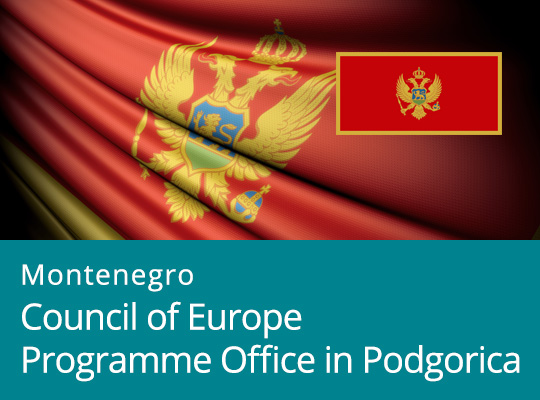International Roma Day celebrates Roma history, culture and language, and political self-determination as a non-territorial nation. It provides an opportunity to raise awareness of the problems that the Roma community still faces today. This year, 8 April marks the 50th anniversary of the First World Roma Congress, held in Orpington, Kent, United Kingdom, from 7 to 12 April 1971.
On this occasion, the Council of Europe Programme Office in Podgorica stresses the importance of a commitment by all institutions, organisations, and individuals to intensify the process of social inclusion of Roma and Egyptians in Montenegro. The Council of Europe called on its partners and associates across Europe to display the Roma flag, as a symbol of that commitment, as well as a symbol of respect for Roma traditions and culture. The Parliament of Montenegro, together with several municipalities including the capital Podgorica, are joining on this initiative by displaying the colours of the Roma flag on their official buildings and the Millenium Bridge.
"The Council of Europe calls for the strategic planning of public policies to create inclusive living conditions and remove discriminatory barriers for Roma and Egyptians in all spheres of their lives, especially in the areas of health, education, work, and social welfare. We all have a responsibility in ensuring that the Roma and Egyptian population effectively has equal rights and access to the same opportunities as other member of society", said Evgenia Giakoumopoulou, head of the Council of Europe Programme Office in Podgorica.
Despite progress made in enhancing the protection of Roma and Egyptians' rights in Montenegro, this population remains at a heightened risk of vulnerability and discrimination, especially in terms of access to education, health, employment. The coronavirus pandemic has further exacerbated this pre-existing situation and increased the challenges that Roma and Egyptian people face in the country.
Roma and Egyptians issues in Montenegro have been in the focus of the Council of Europe. Efforts to empower them to participate more actively in local decision-making processes are being implemented through the joint EU-CoE ROMACTED programme, which is entering its second phase of implementation. This regional programme covers the WesternBalkans and Turkey, while in Montenegro, it is implemented in eight municipalities. Applying the concepts of good governance in practice will contribute to strengthening the capacities of local self-governments to work on Roma inclusion. The programme aims to prepare local development actions to improve the quality of life of Roma and reduce the gap between Roma and non-Roma, including mitigating the effects of the Covid-19 pandemic.




